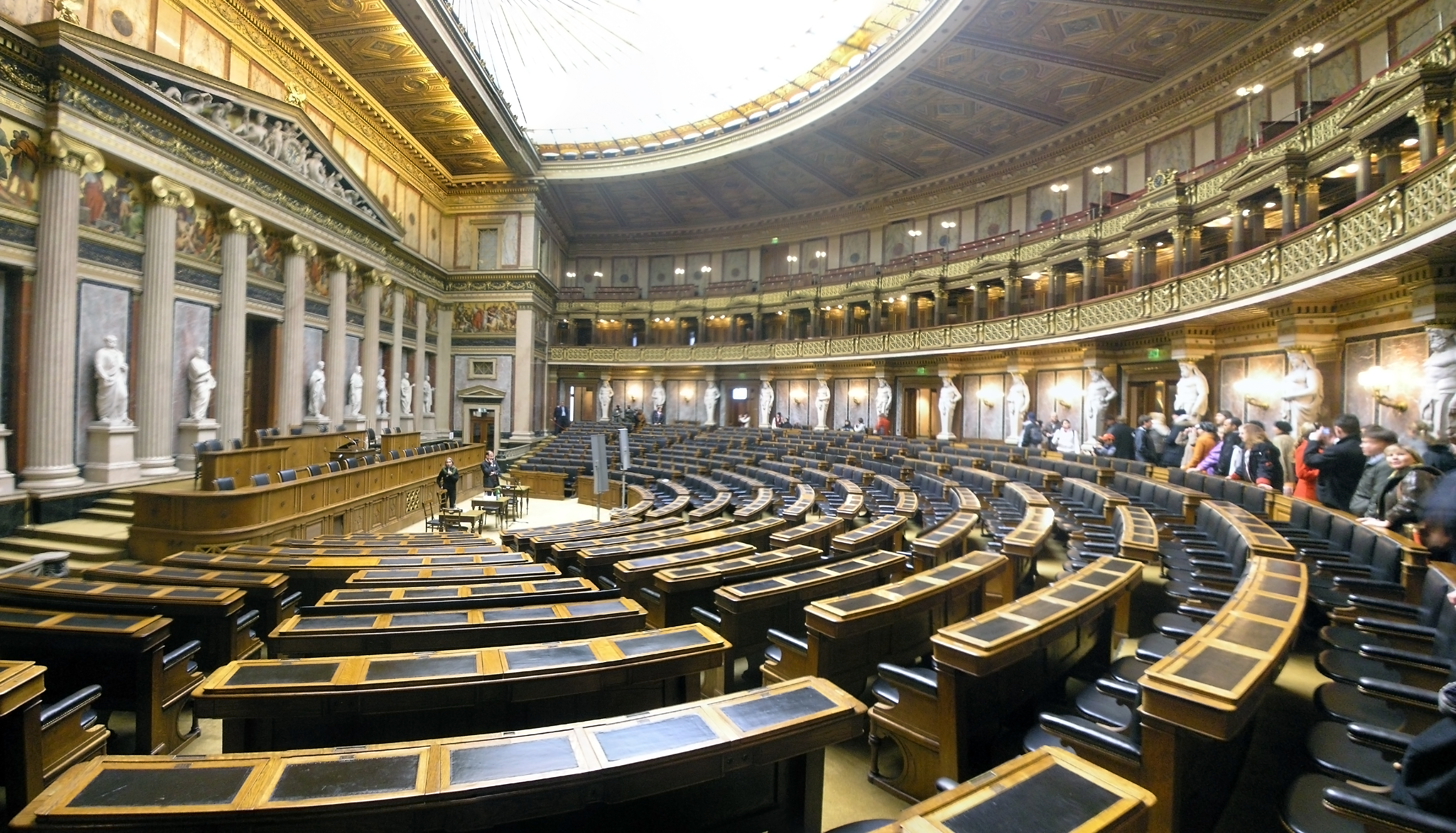

After three years of brutal civil war and more than thirty under a dictatorship, Spain opened the doors of freedom in 1978. The Spanish Constitution voted the 6th December 1978 meant the commitment of Spaniards to a future built upon national reconciliation and the common wish of peace and liberty. Thanks to outstanding statesmen, the transition from the dictatorial system to democracy was led with the collaboration of all political forces (right-wing, socialists, communists, nationalists), giving birth to a carta magna that represented the values of each and every ideology. Now, nearly forty years later, the Spanish democratic system seems to be teetering on the brink of collapse due to new revolutionary political groups and the futility of Parliament. Nevertheless, it is not the only case in Europe—France, Germany or the UK are likewise menaced by the crisis of their political systems.
The fact is that the recently coined term ‘representative democracy’ does not meet the needs and desires of society. Indeed, democracy implies per se that any representation of the people’s power is not licit. Therefore, neither France, Germany, the UK nor Spain can be considered democracies, on the grounds that the power does not belong to the people. The difference between democracy and representative democracy is obvious if we pay attention to where the power is placed in each system. While in democracy the power resides in the people, in a representative democracy the power theoretically belongs to the people, although it is actually held by the representatives, in fact, the rulers, thus the roles of representative and ruler coincide in the same person.
The birth of representative democracy goes back to 1789, the French Revolution. As a result of the combination of several Enlightenment ideas, a new political theory was instituted. Instead of the previous feudal system where there were three different elements, (the people-the representatives of the people-the King) playing different roles (the represented-the representatives-the power), the French Revolution proposed a two-tier system: the Nation would be sovereign but its power would be exercised by its representatives. The implications of this modern democracy are worryingly severe, once the people’s power becomes the representatives, who are at the same time the rulers, the people have no limit face to the power. In other words, the people cannot enforce their rights against the power, since the power acts on behalf of the people.
This system has sometimes functioned, especially in good times, however, since the economic crisis of 2008, people discovered that they had no means to protect their rights against the damaging measures governments were making (wage cuts, budget reductions, tax increases, etc.). The authors of these measures were the representatives they elected so that they defended their interests. Most populist parties that have emerged in Europe, like Podemos, Front National, Syriza, etc. have profited from the gap between the people and the actual power with the purpose of becoming the real representatives of the people against the power.
Similarly, the European project, which aims to transform itself in a more democratic system, lacks the same solid democratic foundations. Many argue that the European Parliament has made huge progress in terms of representing European citizens’ interests. Nonetheless, the fact that the European Parliament is made up of politicians from member Estates who obey each party’s conveniences contradicts the belief that they have any intention of serving citizenship.
It is undeniable that European democracies are immersed in a deep crisis. Perhaps the solution lies in a profound reflection process through which we must reassess the way we understand politics. An active and sensible participation of people in public affairs is required to construct a real democracy, substantial debates on real concerns must relive in Parliaments, reasonable and feasible suggestions must be proposed. Now is the time to revisit Europe’s political history; not surprisingly, in the origins of the res publica, we would find extremely useful tips to revive the true nature of democracy.
Maitane T. Puente González is currently in her final year of LLB and European and International Law Diploma at Universidad CEU San Pablo (Madrid, Spain). She has worked as a legal intern at the Basque Competition Authority and the State Attorney`s Office and since 2015 she has been working as a teaching assistant for the Universidad CEU San Pablo in the departments of European Law (2015-2016) and Spanish Civil Law (2016-2017). At the moment, she is working on her final year dissertation on a comparative approach of good faith in common law and civil law systems.
- Gallego García, E. (2016) Autoridad y Razón. Hobbes y la quiebra de la tradición occidental, Madrid: Centro de Estudios Políticos y Constitucionales.
-
Eberhardt, M.L. (2015) Representative democracies in crisis. Participatory democracy and citizen participation as an option, Araucaria. Revista Iberoamericana de Filosofía, Política y Humanidades, p. 83-106.

 The geopolitical role of the Sahel: the influence of the EU and other Great Powers in the Malian crisis
The geopolitical role of the Sahel: the influence of the EU and other Great Powers in the Malian crisis  Is Nuclear Disarmament Still a Dream? The Third Meeting of State Parties in Perspective
Is Nuclear Disarmament Still a Dream? The Third Meeting of State Parties in Perspective  Strategic Saboteur: Hungary’s Entrenched Illiberalism and the Fracturing of EU Cohesion
Strategic Saboteur: Hungary’s Entrenched Illiberalism and the Fracturing of EU Cohesion  The invention of development: power, narrative, and the afterlife of Truman’s speech
The invention of development: power, narrative, and the afterlife of Truman’s speech 


